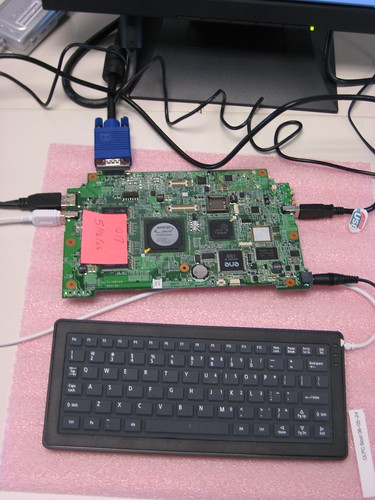September 30, 2006
He is the Law
 While we continue to arm the robots at an alarming rate, the real transition of power and control is far more subtle and insidious. Humanity is ceding power to the machines, but not at gunpoint. Rather, we are relinquishing our will to the machines through the kinds of bureaucratic machinery Max Weber and Terry Gilliam would have a hard time imagining.
While we continue to arm the robots at an alarming rate, the real transition of power and control is far more subtle and insidious. Humanity is ceding power to the machines, but not at gunpoint. Rather, we are relinquishing our will to the machines through the kinds of bureaucratic machinery Max Weber and Terry Gilliam would have a hard time imagining.
I am talking about the reification of bureaucracy in the form of software – the rules that we all live by are being carved into stone, or more accurately, etched in silicon. Code == Law?
Some industries have already made this transition. From the sympathetic bartenders unable to extend happy hour a moment past 7pm, to the tele-tellers who inform the customer that “the system” will not allow them to exercise any judgment or compassion, some systems are already being governed by the machines. But this is just the start.
In the corporate world, IBM is banking on the tight relationship between software and processes. I recently attended a talk presented by their VP of Services, Stu Feldman, and he relayed an anecdote about certain contracts in the financial sector which are no longer governed by legal documents. The final word on maturation and vesting is expressed in a crufty old C program… Considering some of these deals are worth billions, the impact is suddenly more significant than an overpriced cocktail or an unwaied late fee.

The starkest example of this trend to date, is the recent announcement by the chinese government that software issue judgments in criminal cases. While they justify this system on the grounds that it will help eliminate the effects of corruption and bribery, reality’s reassemblance to pulp science fiction is growing by the day.
 Filed by jonah at 1:52 am under epistemology,water
Filed by jonah at 1:52 am under epistemology,water
No Comments


